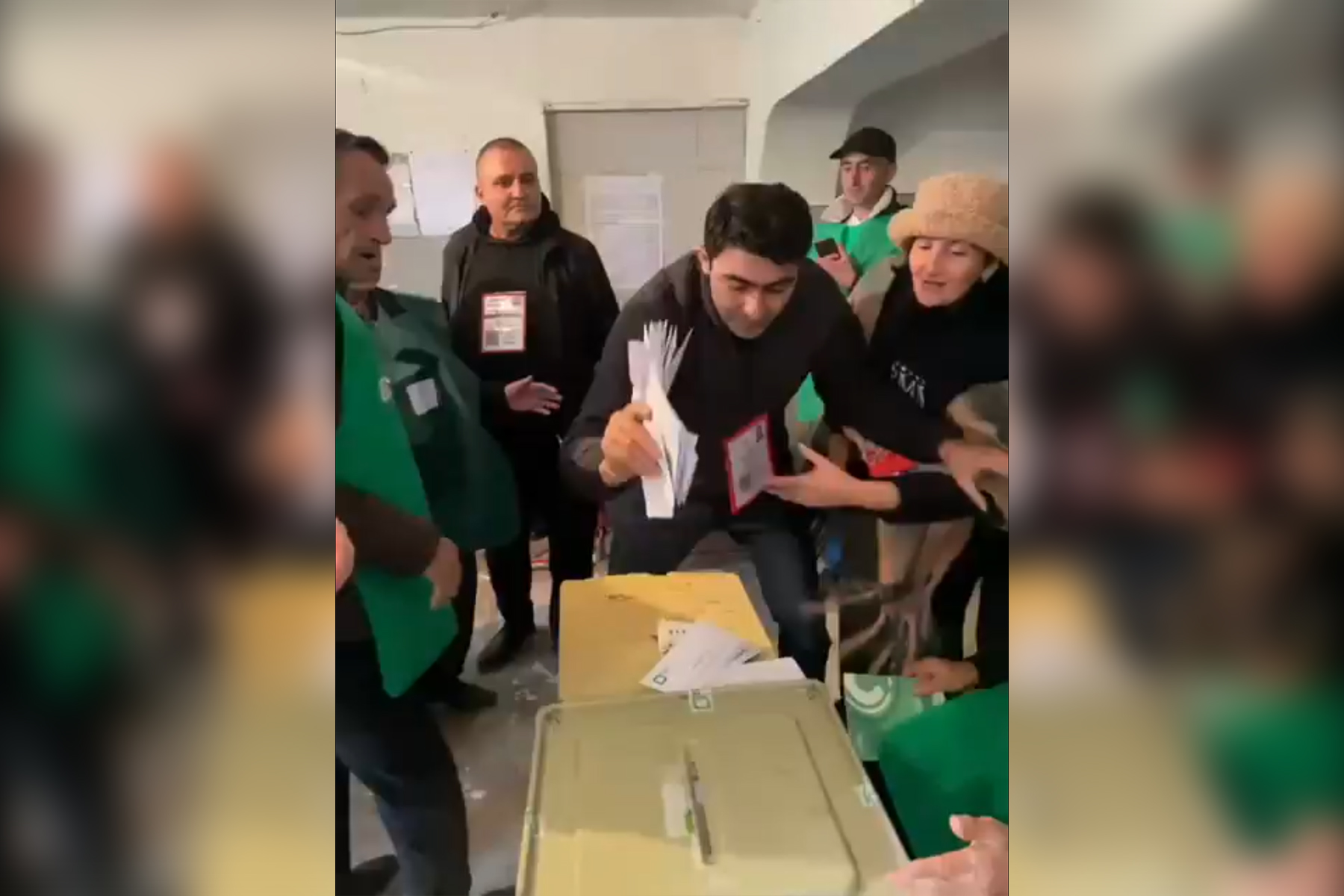Local observers outline scheme of ‘mass election fraud’ in Georgia’s parliamentary vote

Georgian election observer coalition, We Vote, have claimed to have identified a scheme of ‘mass election fraud’ by the Georgian authorities in 26 October’s parliamentary elections.
During a press conference in Tbilisi on Monday, the group said they would be challenging, and apparently demanding the annulment of the results from 189 electoral precincts, representing over 300,000 votes. They said this number could yet go up.
We Vote alleged that there was an ‘organised fraud scheme’ that the authorities prepared before the vote and used to rig the election.
Londa Toloraia, the head of the group, said they had collected over 370 pieces of photographic and video evidence as well as eyewitness testimony of the widespread use of multiple voting using copies of identification documents illegally collected before the vote.
Toloraia highlighted reports of voter ID confiscations and the unlawful acquisition of personal data in the lead-up to the election, documents she said were then used by people to vote multiple times.
‘Despite numerous calls for investigative bodies to take action on the aforementioned incidents, they remained completely inactive’, My Vote noted.
‘Some of the voters arriving at polling stations had a piece of paper placed in their passports or attached to their ID cards containing the personal identification numbers of other individuals, which were used to cast votes. Additionally, in some cases, voters managed to vote by using a photo of an ID card stored on their phones’, Toloraia said.
The group identified compromised inking procedures and intentional obstruction of observers from monitoring them as central components of the fraud.
According to Toloraia, the Central Election Commission’s decision in August to assign roles to precinct election commission members seven days in advance as opposed to election day itself was also instrumental for ensuring people in on the scheme were in the right positions to pull it off.
These registrars were allegedly then tasked with quickly entering the personal ID numbers written on those papers into the verification machine. They were then allegedly tasked to skip or perform poorly the procedure of inking a person’s finger, which is meant to prevent people from voting multiple times, allowing these fraudulent voters to cast ballots again in other polling stations.

According to Toloraia, voters were allowed into polling stations without proper ink verification, or the ink was applied insufficiently. The quality of the marking fluid was reportedly poor, often leaving no visible trace or easily washing off. In some cases, manipulation tactics were used, such as spraying the fluid falsely while covering the finger with a tissue or another barrier.
‘Malfunctions in the [electronic verification] screens were reported, including battery issues and other technical problems’, Toloraia added.
According to her, these tactics were facilitated by intentionally arranging the polling area and placing registrars’ desks in a way that obstructed election observers from monitoring voter verification procedures. She reported that some of their observers who protested this arrangement were confronted by election officials and, in some cases, expelled from polling stations.
Toloraia also accused pro-government observer groups of participating in the conspiracy by attempting to ‘neutralise’ monitors by ‘stirring up chaos’ to distract observers from monitoring voter verification.
‘Despite extremely restricted observation, a hostile environment, and attempts at physical, verbal, and psychological violence and intimidation, observers managed to identify the main trends of this scheme and document the evidence’, Toloraia claimed.
My Vote reported receiving ‘over 900’ reports of violations across 1,131 polling stations they monitored, including those 189 where they believe repeated violations may have ‘substantially affected’ the election results and hence needed to be annulled.
Following the elections, My Vote started crowdsourcing additional evidence to prove the manipulations of the vote using the hashtag #მევნახეგაყალბება, meaning ‘I saw fraud’, to urge voters or volunteer citizen observers to report the election day violations they witnessed.
The official results of Saturday’s vote would grant Georgian Dream a fourth consecutive parliamentary victory, with 54% of the vote, their biggest share of the vote since coming to power in 2012.
OC Media’s journalists witnessed widespread violations in polling stations across the country, including violations of voter secrecy, intimidation and pressure on voters by Georgian Dream activists, harassment of observers and journalists, vote buying, and handing out of multiple ballots.
The results have been rejected by the opposition, who have vowed to reject their seats and demand a new election under international administration.
Key civil society groups and Georgian Dream’s former ally, President Salome Zourabichvili, have also rejected the results as fraudulent.
Domestic criticism has been accompanied by calls from the EU, the US, and separate Western countries urging the Georgian government to investigate all election irregularities.









